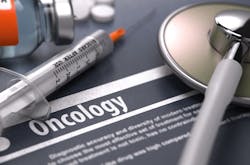That approximately four of five hospitals have a basic electronic health record (EHR) system should be alarming for one reason: the one in five hospitals that don’t use it. That means that 20 percent of healthcare providers still rely on manual filing processes that became outdated the moment Lockheed developed an electronic system in the mid-1960s. And this shouldn’t come as a shock. Because when it comes to adopting technology quickly, healthcare organizations are at the back of the pack.
Take blockchain, for example. Despite hitting the mainstream a decade ago, blockchain is just now starting to register on the radar of a few cutting-edge healthcare providers. Still in its infancy, healthcare providers mostly use blockchain to help facilitate EHR management or streamline supply chain and logistical functions. For example, German company Camelot ITLab relies on blockchain to carefully monitor cell transportation during extracorporeal cell therapies, just one of several ways blockchain seamlessly meshes with a number of health specialties.
Thanks to accelerating adoption, blockchain is projected to make a $5.61 billion impact on healthcare by 2025 with uses expected to expand beyond the supply chain and into areas such as cancer research and treatment. With blockchain as a resource, healthcare executives help oncologists make significant strides in the way they diagnose and treat their patients.
The Benefits of Blockchain Adoption
Technological adoption isn’t easy. Large EHR enterprises have their hands full managing their current infrastructures and lack the resources and expertise to monitor some high-level or complicated health issues such as cancer. With blockchain, health providers afford their oncology teams the opportunity to dive deeper into the disease’s complexities in order to better formulate their courses of action.
At the prenatal level, blockchain can analyze an embryo for any genetic predispositions it might have. By sequencing an embryo’s genome, researchers could determine whether it contains an elevated risk of cancer and other ailments, which allows doctors to take preventive steps.
Of course, the genome is perhaps the most personal of all data, and history tells us that companies such as Google and Facebook can’t be trusted with it. With blockchain, however, it would be possible to remove personally identifiable information and share these records freely. Blockchain allows for the free flow of healthcare information that could lead to breakthroughs on a number of emerging medical advancements.
Building Better Solutions
Blockchain injects transparency into any process with which it integrates. Here are three ways it can boost oncologists’ research and treatment efforts.
1. Information sharing will be more seamless. One persistent problem in the healthcare space centers on disparate data systems. Patients generally start with a blank medical slate at each healthcare provider they visit, meaning every new provider wastes time and money collecting the same redundant information.
Thanks to SaaS-enabled blockchain, non-protected health information can seamlessly transfer across facilities and networks. With medical records based on blockchain, healthcare providers (and patients themselves) could access this information from anywhere in the world, allowing them to provide better care, faster.
2. Patient matching will improve. According to one study, just 16 percent of cancer patients knew about available trials when they were contemplating treatment options. With blockchain, shared information can match patients with relevant clinical treatment options.
With this potential option, providers can de-identify EHRs and add them to a publicly available ledger that notifies patients about treatment options for which they are an ideal match. Patients wouldn’t be the only beneficiaries of such a system. By filling spots with the most ideal patients, clinical trials can improve accuracy and spur the creation of more reliable treatments.
3. Research will become more efficient. A publicly accessible ledger of medical records could also inform the most thorough medical research ever undertaken. The first effort to sequence the human genome cost $3.7 billion and required 13 years of computing power. Currently, that process costs about $1,000 and needs less than three days to process; at this pace, that price will drop below $100 in the next five years.
With so much genetic and medical information available, oncologists could develop groundbreaking treatments for diseases that have so far eluded cure. With an anonymous genome database, pattern-matching processes compare assess cancer patients (one older and one younger) with similar genomes and see how diet, exercise, and other intangibles impact overall health. This information enables oncology teams to identify patterns in patients to better inform ensuing treatment and research.
Blockchain goes well beyond bitcoin. While cryptocurrency ebbs and flows in popularity, blockchain is a flexible technology with a number of applications, including oncology. With continued research and development, cancer specialists can dig into the roots of the disease to improve provider processes and patient outcomes.
Karthik Pichai combined his passions for technology and entrepreneurship to co-create Augusta HiTech, a consulting firm dedicated to improving its partners’ product development, software, and technological services. Pichai is the current CTO at Smart Engagement Inc., is a board member at 420 Blockchain Inc., an entrepreneur-in-residence at Vonzos Partners Venture Capital, and an advisor at SmartChain Media.


